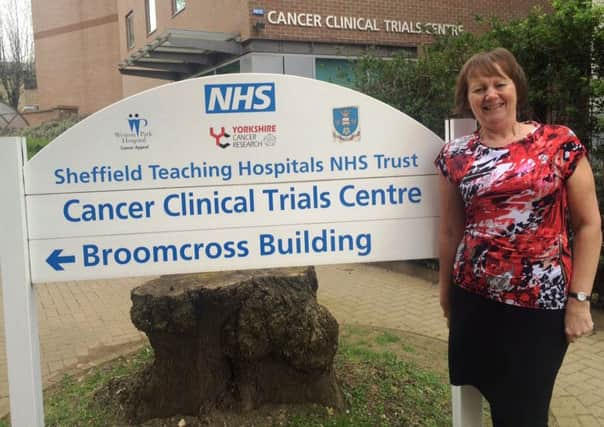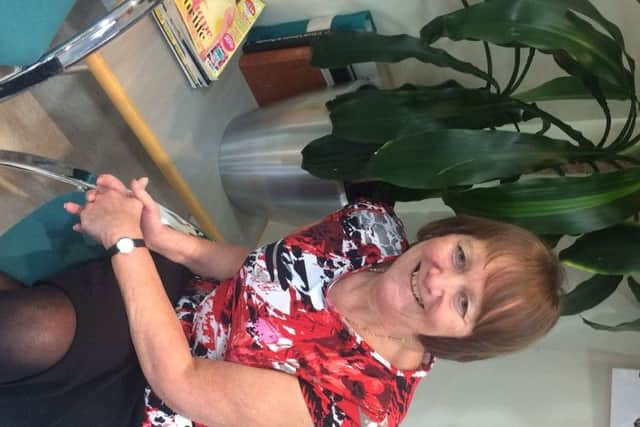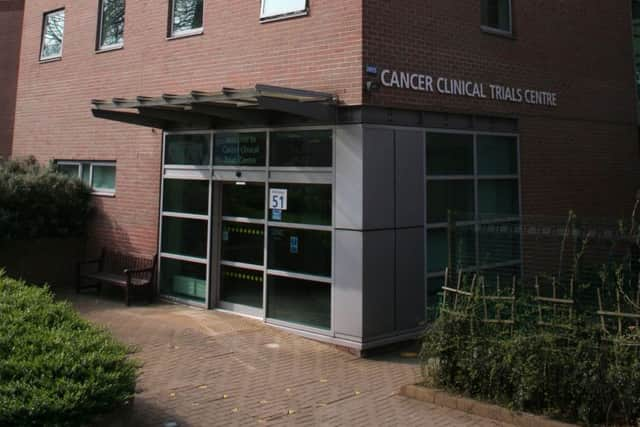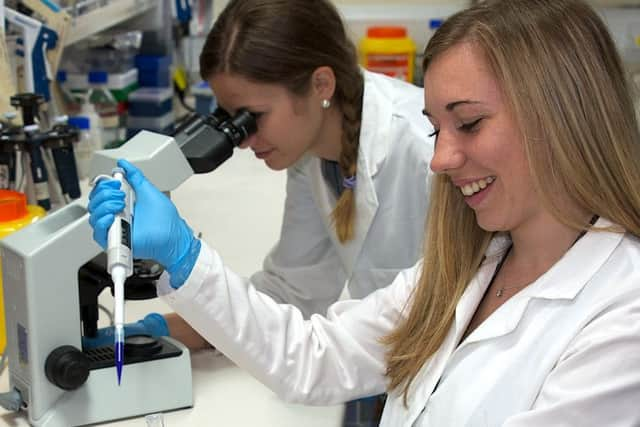Steel City at forefront of research for cancer patients


It was 40 years ago, after graduating from university and training as a medical laboratory technician, that Lesley Bruce found herself working in the very first lymphoma research clinic in Sheffield, led and initiated by Professor Barry Hancock.
As a lab technician, Lesley played an imperative role in the research, development and treatment of lymphoma cancers affecting patients predominantly in the Sheffield region.


Advertisement
Hide AdAdvertisement
Hide AdAnd 20 years on, after many advances in the cancer field worldwide, Lesley was a key member of the team who helped set up the Institute for Cancer Studies and the Clinical Oncology Trials at Weston Park Hospital. With the increased recognition of the benefits of clinical trials, particularly in the treatment of cancers, came the growth of the programme at Weston Park Hospital, within which Lesley was proud to continue playing a fundamental part.
Now working across the Yorkshire and Humber Clinical Research Network and as Business Manager at the Cancer Clinical Trials Centre, Lesley remains at the forefront of the delivery of trials in Sheffield and is overwhelmed by the advances made in her 40 year career.
Lesley said: “It’s quite remarkable how different the research and treatment of cancers looks now compared to how it did all those years ago when I was honoured to be working as a lab technician in the very first lymphoma clinic in Sheffield.”
She added: “Back then, trials were very much a rarity and patients’ treatment options were fairly limited compared with the options available for most cancer patients today.


Advertisement
Hide AdAdvertisement
Hide Ad“Trials now play an integral part in the treatment plans of all cancer types and are proving to not only improve the chances of survival but are also shaping the future of cancer services worldwide.”
Weston Park Hospital is one of only a handful of specialist cancer hospitals in England and treats patients from all over South Yorkshire, North Nottinghamshire and North Derbyshire – a population of almost 1.8million people.
The hospital’s Cancer Charity is the only one dedicated to the hospital and exists to support the world-class cancer research and to improve the treatment and care for people living with cancer.
The cancer charity has proudly funded Lesley’s role for the majority of her time at Weston Park Hospital, where she has made considerable contributions to the now established Cancer Clinical Trials Centre.


Advertisement
Hide AdAdvertisement
Hide AdThe Cancer Clinical Trials Centre was opened in 1999 by the Duchess Of Gloucester when an initial need for a research team specialising in clinical trials research for patients in Sheffield was identified.
Since then, the unit has grown substantially to accommodate for the increase in cancer incidence and to support the multi-channelled and often complex journey of a cancer patient from initial diagnosis right up until after care.
The centre currently runs over 100 clinical trials at any one time and plays a critical role in the development of cancer treatment and enables Sheffield to remain a leading centre for clinical research into cancer.
But four years ago, as Lesley continued her work within the Cancer Clinical Trials Centre, a routine breast screening discovered a lump which was confirmed to be breast cancer and she was referred to undergo a lumpectomy and a sentinel node biopsy followed by radiotherapy at Weston Park Hospital.


Advertisement
Hide AdAdvertisement
Hide AdSuddenly, Lesley was to experience the other side of the hospital that she had spent the majority of her life developing.
She said: “It was all very surreal at the time and although I’d worked so closely to cancer patients for most of my life, its true- you never ever think it’s going to be you in the patient waiting room.”
“I suppose I had the extra benefit of knowing just how lucky I was to be under the expert care of staff at Weston Park Hospital and that certainly put my mind at ease from the minute I was diagnosed.”
“Research and treatment of breast cancer specifically, has, and continues to be, a priority for the hospital, so I was reassured that I would be able to access the very best standard of care throughout.”
Advertisement
Hide AdAdvertisement
Hide AdTo find out more about the cancer charity’s work visit Weston Park Cancer Charity website. For more information on the Cancer Clinical Trials Centre visit University of Sheffield Clinical Oncology
Over the next five years Weston Park Charity will:


1) Enhance patient comfort and care by improving the environment at Weston Park and other hospitals within the cancer network
2) Deliver high quality, pioneering cancer research which brings benefits to local patients now and in the future
3) Provide essential support services to empower patients to live the best lives possible at all stages of their cancer journey
4) Invest in new innovative cancer initiatives and continue to fund established projects to achieve the best outcomes for local cancer patients.